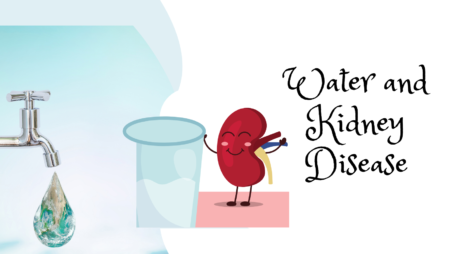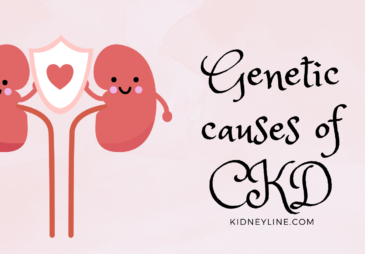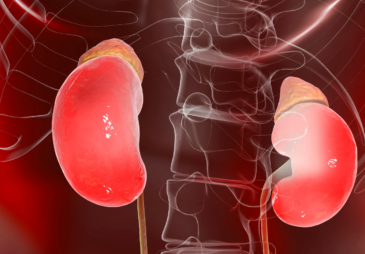When you have kidney disease, your kidneys are not able to filter waste and excess fluid from your blood effectively. This can lead to a buildup of waste and fluid in your body, which can cause several health problems. However, you need to take enough water to allow your kidneys to work properly.
Knowing how much water is safe to drink when you have kidney disease can be difficult. Drinking too much water can put extra strain on your kidneys and heart. On the other hand, not drinking enough water can lead to dehydration, which can also be harmful.
This article will explore how much water you can drink with kidney disease.
Causes of Kidney Disease
Kidney disease is a condition that affects the kidneys, which are responsible for filtering waste and excess fluids from the blood. There are many causes of kidney disease, including:
- Diabetes
- High blood pressure
- Family history of kidney disease
- Obesity
- Smoking
- Autoimmune diseases
- Urinary tract infections
Progressive kidney disease that has lasted more than three months is termed chronic kidney disease (CKD).
Symptoms of Kidney Disease
Early stages of CKD may not have any noticeable symptoms. As the disease progresses, the following symptoms may occur:
- High blood pressure
- Swelling in the legs, ankles, feet, or face
- Shortness of breath
- Feeling tired or weak
- Loss of appetite
- Nausea and vomiting
- Difficulty sleeping
- Changes in urine output or color
- Itching or numbness in the hands or feet
Stages of Kidney Disease
Chronic kidney disease is divided into five stages based on the level of kidney function:
| Stage | Description | GFR* |
| Stage 1 | Very mild kidney damage with normal or increased GFR | >=90 |
| Stage 2 | Mild kidney damage with mildly decreased GFR | 60-89 |
| Stage 3 | Moderate kidney damage with moderately decreased GFR | 30-59 |
| Stage 4 | Severe kidney damage with severely decreased GFR | 15-29 |
| Stage 5 | Kidney failure with very little or no GFR | <15 |
*GFR stands for glomerular filtration rate, a measure of kidney function.
Importance of Water in Kidney Disease
Can Water Prevent Kidney Disease?
Water is an essential component of our body and is vital for our overall health. When we drink enough water, it helps our kidneys to flush out toxins and waste products from our bodies. When you don’t take enough water, it makes it difficult for the kidneys to function.
For example, observational studies showed an increased incidence of kidney disease among young male farmers in parts of Central America. Experts believe dehydration contributes to the kidney dysfunction seen in these farmers.
However, it is crucial to note that drinking too much water can also be harmful for those with kidney disease. This is because the kidneys may not be able to filter out excess water, leading to water retention and swelling. In addition, excess fluids in the body can put a strain on the heart and make it difficult to breathe. It could also lead to problems with sodium concentration.
Benefits of Drinking Water for Kidney Disease Patients
Drinking enough water can provide several benefits for those with kidney disease:
- Prevents dehydration, which can cause kidney damage
- Helps flush out toxins and waste products from the body
- Reduces the risk of kidney stones
- Improves overall health and well-being
It is important to note that the benefits of drinking water may vary depending on the stage and severity of kidney disease. Therefore, it is critical to consult with a healthcare professional to determine the appropriate amount of water to drink and to discuss any potential risks or complications.
Recommended Water Intake for Kidney Disease Patients
The recommended amount of water depends largely on the stage of kidney disease.. People with stages 1-3 hardly require any restrictions. In general, experts suggest adults need about 2.2 – 3 litres of fluid.
For people in stage 5, your recommended water intake would depend on how much urine you are still making. If you are on dialysis and make less than 100ml of urine daily, you will need to limit your fluid intake.
Your doctor will suggest a value depending on your age, weight, urine output and weather. For example, if the weather is hot, you’re likely to sweat a lot. So, your doctor may allow you to take a bit more water than if the weather were cold.
Remember that foods and drinks contribute to your overall water intake.
Other factors that can affect water intake include treatment used (dialysis and medications) and coexisting health conditions, such as diabetes or heart disease. You should always consult with your healthcare provider to determine the appropriate amount of water intake for your specific situation.
Tips for Monitoring Water Intake
Monitoring water intake is important for kidney disease patients to ensure they get enough fluids without overloading their kidneys. Here are a few tips for monitoring water intake:
- Measure how much water you drink daily using a measuring cup or water bottle.
- Set reminders on your phone or computer to drink water throughout the day.
- Keep track of your urine output to ensure you are not retaining too much fluid.
- Avoid drinking too much water at once, as this can strain the kidneys.
- Remember that water-rich foods like fruits and vegetables add to your fluid intake.
By following these tips and working with your healthcare provider, you can ensure that you are getting the right amount of water to maintain healthy kidney function.
What is the Best Water for Kidney Disease?
There are so many kinds of water with claims about their health benefits. But plain water is probably best for kidney disease so long as it is clean.
Alkaline Water and Kidney Disease
Alkaline water has a higher pH level than regular tap water. Because CKD can cause acidity in the blood, there are speculations alkaline water may be helpful in CKD. For now, there are no studies to confirm this theory. It appears unlikely alkaline water would alter blood pH since the hydrochloric acid in the stomach would rapidly neutralize any alkaline water drunk..
Most kidney doctors would advise you to stick to plain water. However, to help with acidosis, you should consider an alkaline diet instead.
Coconut Water and Kidney Disease
Although coconut water is a healthy drink, it is rich in potassium. People with CKD often struggle with keeping potassium levels in check. As such, coconut water may not be your best hydrating drink.
If you have mild to moderate kidney disease with no challenges keeping your potassium levels in check, it is okay to take coconut water occasionally.
Tap Water and Kidney Disease
Tap water is generally safe for people with kidney disease as long as it meets the standards set by the Environmental Protection Agency (EPA).
If you’re concerned about the quality of your tap water, you can consider using a water filter or purchasing bottled water that meets EPA standards. It’s also important to talk to your healthcare provider about your specific water needs and concerns.
Final words
Although water is a significant component of our bodies, kidney disease may make it difficult to regulate its levels. Too much or too little water has health implications. Working with your healthcare team to determine what approach is right for you is important.
Disclaimer
This article is for informational purposes only. Discuss any medical problems or concerns with your healthcare team.




